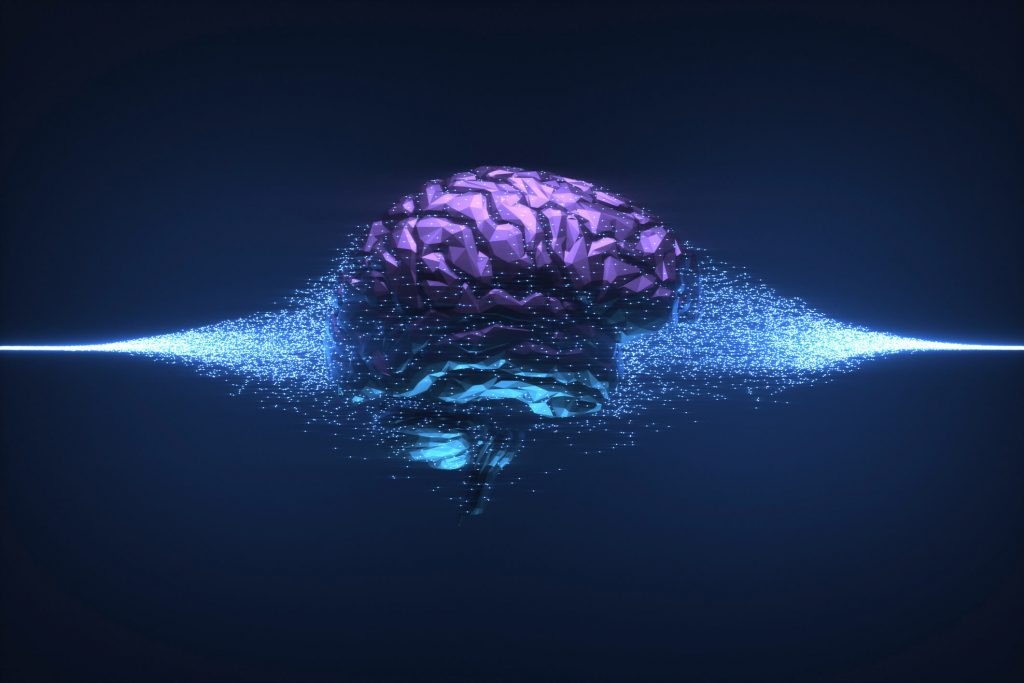The good news is that you can stimulate BDNF production and boost your brain’s BDNF levels naturally. In this article, we’ll share with you how to increase your BDNF levels naturally.
19 Ways to Increase BDNF Naturally
Many ways to increase BDNF are hormeses, which are stressors that make you stronger in small and healthy doses. In response to these stressors, your brain produces BDNF to grow and adapt. In addition, you can mix and match these hormeses in order to reap even more health benefits, including greater increases in BDNF levels.

Exercise
Exercise increases neurogenesis and favorable brain responses that come with an increase in BDNF in both aged and young people.
Longer exercise sessions increase BDNF more, but even 10 minutes of intense exercise can somewhat increase BDNF and improve your cognitive function.
However, this is not a quick fix, as BDNF can fall to pre-exercise levels in 30 – 50 minutes. Therefore, to sustainably increase BDNF, you should exercise regularly. If you wish to step it up, working out in a hot room even further increases your BDNF levels than exercising alone.

Heat exposure
Hyperthermic conditioning is the process of continuous exposure to high temperatures for a short time. You can get hypothermic conditioning from any type of heat exposure, including, steam saunas, dry saunas, hot baths, and infrared saunas. Any of these heat exposures can increase your BDNF.
Infrared saunas expose the human body to as high temperatures as 60°C for at least 15 minutes, typically increasing core body temperature by around 1°C.
In addition, rat studies show that infrared lights on the brain show antidepressant and anti-anxiety effects partly by improving hippocampal neurogenesis and increasing BDNF levels.
Your BDNF levels increase either by performing exercise in a hot room, enjoying your day submerged in hot water, or relaxing in infrared saunas.
Stress management
BDNF levels decrease in response to stress, so it is important to keep your stress levels in check. Proper nutrition and exercise aid in stress management and enhance cognitive function.
Intermittent fasting
Intermittent fasting is defined as not consuming food or caloric beverages for twelve or more consecutive hours.
It reduces oxidative stress and inflammation, all of which connect to increased production of BDNF. It also helps with BDNF levels by improving blood sugar control.
Ketosis
Ketosis delivers similar anti-aging and cognitive enhancement benefits as intermittent fasting, except with more ketones to fuel the brain. Naturally, you may also enter ketosis while fasting.
When the body is in ketosis, ketone bodies aid in the production of BDNF.
A ketogenic diet decreases neuronal death in the presence of inflammation and excess glutamate. Also, ketone bodies have antioxidant and anti-inflammatory properties.
Deep sleep
Our body goes through four sleep stages, including rapid eye movement (REM) and non-rapid eye movement (NREM).
Sleep is divided into five stages:
- Wake
- N1 (Stage 1)
- N2 (Stage 2)
- N3 (Stage 3) or deep sleep
- R or REM Sleep.
Stage 3 (N3) is the deepest stage of sleep. This is the hardest stage to wake up from. REM sleep enhances learning and memory. Lack of sleep in stages N3 and R lower BDNF levels.
Sleep problems affect physical and mental health, and increase stress vulnerability.
Reduction in BDNF levels is connected to poor sleep quality. Because sleep deprivation is stressful to your body, it lowers BDNF.
Sleep deprivation (along with chronic stress) may increase anxiety, insomnia, and depression. Thus, getting enough sleep for your brain and body is crucial for all aspects of health, including BDNF levels.

Sunlight exposure
Our BDNF levels tend to shift with the seasons. BDNF concentrations tend to increase in the spring and summer, while decreasing in the fall and winter. In addition to boosting BDNF, the sun increases vitamin D production and improves mood.
Only 20 minutes of exposure to natural light is enough to increase your BDNF levels. Therefore, it is important to get some sun during the day and avoid being in enclosed and dark spaces all day.
Nootropic supplements that boost BDNF
Curcumin/turmeric
Turmeric is a spice that originated in India and has been used for thousands of years. It has many medicinal properties due to curcumins and turmerones, which have antioxidants and inflammation-balancing properties.
Curcumin increases cell viability and balances inflammatory responses in the brain. Turmeric curcumin supplements increase BDNF levels and may help with mood due to these properties.
Fish oil/omega-3 fatty acids
Omega-3 fatty acids are important components of neural cell membranes and myelin sheath, which are critical for healthy neuronal signals. Fish intake or omega-3 supplementation, reduces inflammation, oxidation, and cell death. This benefits proper neuronal functioning and development.
Omega-3 (found in fish oil) enhances cognitive functioning. By decreasing oxidative stress, omega-3 maintains neuronal function and plasticity. This action increases BDNF levels.
Cacao
Cocoa contains flavonoids that can enter the brain to protect neurons and enhance cognitive function. The antioxidant and neuroprotective properties of cocoa aid in BDNF production.

Coffee fruit extract (including caffeine and teacrine)
Generally speaking, caffeine enhances cognitive function—learning, memory, attention, mood, and BDNF levels. Coffee fruit extract comes from coffee berries and contains less caffeine than the average cup of coffee. Nevertheless, coffee fruit greatly increases BDNF levels.
Theacrine is present in coffee and tea, along with fruits and herbs. It enhances cognitive functions. It also potently increases BDNF.
Green tea
Green tea contains many antioxidants with neuroprotective effects and a source of caffeine. We owe these properties of green tea thanks to the presence of polyphenol within it, particularly epigallocatechin-3-gallate (EGCG).
Green tea, especially EGCG, effectively increases BDNF levels.
Fruit polyphenols (resveratrol and polyphenols in blueberries)
Resveratrol is an important polyphenol with anti-aging and anti-inflammatory properties. Resveratrol can significantly boost BDNF levels.
Blueberries and red wine are great sources of resveratrol. However, you may need to eat 10,000 blueberries to get enough resveratrol, so supplementation is the only way to get sufficient doses to improve your BDNF levels.
Magnesium
Magnesium is important for over 300 biochemical pathways in the body, including in the cardiovascular, neuromuscular, and nervous systems. In the nervous system, it is especially important for nerve transmission and neuromuscular conduction.
Increasing brain magnesium improves memory and learning ability. Not only is magnesium mood-boosting but it also increases BDNF levels.
L-theanine
L-theanine is an amino acid with a calming effect found in green tea It has neuroprotective activity (antioxidant activity). L-theanine is a cognitive enhancer that boosts alertness, mood, and attention span partly by increasing BDNF levels.
Ginseng

Ginseng is one of the most adaptogenic herbs. Panax ginseng is the most common ginseng example.
Panax ginseng contains ginsenosides—abundant with anti-inflammatory and antioxidant properties. These properties contribute to neuroprotection and preservation.
Ginsenosides improve energy levels and promote calmness amidst stress. It also plays a role in cell viability—promotes cell survival.
Noopept
Noopept is a small peptide-like molecule similar to piracetam. It has high cognition-enhancing and neuroprotective effects, meaning that noopept increases the survival of neurons.
Noopept directly stimulates BDNF production in neurons.
Synbiotics and butyrate
Synbiotics are probiotics and prebiotics mixtures that work together to provide health benefits to the consumer. They can improve your gut flora composition better than probiotics alone.
Inflammation in the brain and low BDNF levels are linked to age-related cognitive impairment. Synbiotic supplementation counteracts these processes by increasing BDNF, promoting a balanced immune response in the brain, and increasing neurogenesis.
Butyrate is a byproduct of microbial fermentation of dietary fibers. Not only does it support the gut barrier but also increases neurogenesis and BDNF levels. Therefore, it may help with cognitive impairment.
Lithium
Lithium is also particularly well known for its ability to increase levels of BDNF. It protects neurons and reduces cell death.
Lithium stimulates hippocampal neurogenesis. It enhances cognitive functions and overall mental performance. Lithium has a remarkable influence on cells. Apart from protecting cells, it induces cellular repair and regeneration.
To learn more about BDNF, check out parts 1 and 2 of our 3-part series:
Part 1: What is BDNF and its roles in the brain
Part 2: How to know if you have low BDNF and what could be the reasons
References:
- Kwon SJ, Park J, Park SY, et al. Low-intensity treadmill exercise and/or bright light promote neurogenesis in adult rat brain. Neural Regen Res. 2013;8(10):922-929. doi:10.3969/j.issn.1673-5374.2013.10.007
- Sleiman SF, Henry J, Al-Haddad R, et al. Exercise promotes the expression of brain derived neurotrophic factor (BDNF) through the action of the ketone body β-hydroxybutyrate. Elife. 2016;5. doi:10.7554/eLife.15092
- Schmolesky MT, Webb DL, Hansen RA. The effects of aerobic exercise intensity and duration on levels of brain-derived neurotrophic factor in healthy men. J Sports Sci Med. 2013;12(3):502-511.
- De la Rosa A, Solana E, Corpas R, et al. Long-term exercise training improves memory in middle-aged men and modulates peripheral levels of BDNF and Cathepsin B. Sci Rep. 2019;9(1):3337. doi:10.1038/s41598-019-40040-8
- Kojima D, Nakamura T, Banno M, et al. Head-out immersion in hot water increases serum BDNF in healthy males. Int J Hyperthermia. 2018;34(6):834-839. doi:10.1080/02656736.2017.1394502
- Glazachev OS, Zapara MA, Dudnik EN, Samartseva VG, Susta D. Repeated hyperthermia exposure increases circulating Brain Derived Neurotrophic Factor levels which is associated with improved quality of life, and reduced anxiety: A randomized controlled trial. J Therm Biol. 2020;89(102482):102482. doi:10.1016/j.jtherbio.2019.102482
- Tanaka Y, Akiyoshi J, Kawahara Y, et al. Infrared radiation has potential antidepressant and anxiolytic effects in animal model of depression and anxiety. Brain Stimul. 2011;4(2):71-76. doi:10.1016/j.brs.2010.04.001
- Murakami S, Imbe H, Morikawa Y, Kubo C, Senba E. Chronic stress, as well as acute stress, reduces BDNF mRNA expression in the rat hippocampus but less robustly. Neurosci Res. 2005;53(2):129-139. doi:10.1016/j.neures.2005.06.008
- Worthen M, Cash E. Stress Management. Published online 2022.
- Welton S, Minty R, O’Driscoll T, et al. Intermittent fasting and weight loss: Systematic review. Can Fam Physician. 2020;66(2):117-125.
- Anton SD, Moehl K, Donahoo WT, et al. Flipping the metabolic switch: Understanding and applying the health benefits of fasting: Flipping the metabolic switch. Obesity (Silver Spring). 2018;26(2):254-268. doi:10.1002/oby.22065
- Stockman MC, Thomas D, Burke J, Apovian CM. Intermittent fasting: Is the wait worth the weight? Curr Obes Rep. 2018;7(2):172-185. doi:10.1007/s13679-018-0308-9
- Mattson MP. Energy intake, meal frequency, and health: a neurobiological perspective. Annu Rev Nutr. 2005;25(1):237-260. doi:10.1146/annurev.nutr.25.050304.092526
- Masood W, Annamaraju P, Uppaluri KR. Ketogenic Diet. In: StatPearls [Internet]. StatPearls Publishing; 2022.
- Gasior M, Rogawski MA, Hartman AL. Neuroprotective and disease-modifying effects of the ketogenic diet. Behav Pharmacol. 2006;17(5-6):431-439. doi:10.1097/00008877-200609000-00009
- Patel AK, Reddy V, Araujo JF. Physiology, Sleep Stages. In: StatPearls [Internet]. StatPearls Publishing; 2022.
- Peever J, Fuller PM. Neuroscience: A distributed neural network controls REM sleep. Curr Biol. 2016;26(1):R34-5. doi:10.1016/j.cub.2015.11.011
- Deuschle M, Schredl M, Wisch C, et al. Serum brain-derived neurotrophic factor (BDNF) in sleep-disordered patients: relation to sleep stage N3 and rapid eye movement (REM) sleep across diagnostic entities. J Sleep Res. 2018;27(1):73-77. doi:10.1111/jsr.12577
- Giese M, Unternährer E, Hüttig H, et al. BDNF: an indicator of insomnia? Mol Psychiatry. 2014;19(2):151-152. doi:10.1038/mp.2013.10
- Monteiro BC, Monteiro S, Candida M, et al. Relationship between brain-Derived Neurotrofic Factor (bdnf) and sleep on depression: A critical review. Clin Pract Epidemiol Ment Health. 2017;13:213-219. doi:10.2174/1745017901713010213
- Rahmani M, Rahmani F, Rezaei N. The brain-derived neurotrophic factor: Missing link between sleep deprivation, insomnia, and depression. Neurochem Res. 2020;45(2):221-231. doi:10.1007/s11064-019-02914-1
- Molendijk ML, Haffmans JPM, Bus BAA, et al. Serum BDNF concentrations show strong seasonal variation and correlations with the amount of ambient sunlight. PLoS One. 2012;7(11):e48046. doi:10.1371/journal.pone.0048046
- Hewlings SJ, Kalman DS. Curcumin: A review of its effects on human health. Foods. 2017;6(10). doi:10.3390/foods6100092
- Choi GY, Kim HB, Hwang ES, et al. Curcumin alters neural plasticity and viability of intact hippocampal circuits and attenuates behavioral despair and COX-2 expression in chronically stressed rats. Mediators Inflamm. 2017;2017:6280925. doi:10.1155/2017/6280925
- Sarraf P, Parohan M, Javanbakht MH, Ranji-Burachaloo S, Djalali M. Short-term curcumin supplementation enhances serum brain-derived neurotrophic factor in adult men and women: a systematic review and dose-response meta-analysis of randomized controlled trials. Nutr Res. 2019;69:1-8. doi:10.1016/j.nutres.2019.05.001
- Robinson JG, Ijioma N, Harris W. Omega-3 fatty acids and cognitive function in women. Womens Health (Lond Engl). 2010;6(1):119-134. doi:10.2217/whe.09.75
- Sugasini D, Yalagala PCR, Subbaiah PV. Plasma BDNF is a more reliable biomarker than erythrocyte omega-3 index for the omega-3 fatty acid enrichment of brain. Sci Rep. 2020;10(1):10809. doi:10.1038/s41598-020-67868-9
- Bauer I, Hughes M, Rowsell R, et al. Omega-3 supplementation improves cognition and modifies brain activation in young adults: EFFECTS OF OMEGA-3 FATTY ACIDS ON fMRI MEASURES. Hum Psychopharmacol. 2014;29(2):133-144. doi:10.1002/hup.2379
- Zemdegs J, Rainer Q, Grossmann CP, et al. Anxiolytic- and antidepressant-like effects of fish oil-enriched diet in brain-derived neurotrophic factor deficient mice. Front Neurosci. 2018;12:974. doi:10.3389/fnins.2018.00974
- Wu A, Ying Z, Gomez-Pinilla F. Dietary omega-3 fatty acids normalize BDNF levels, reduce oxidative damage, and counteract learning disability after traumatic brain injury in rats. J Neurotrauma. 2004;21(10):1457-1467. doi:10.1089/neu.2004.21.1457
- Nehlig A. The neuroprotective effects of cocoa flavanol and its influence on cognitive performance: Cocoa flavanol and cognition. Br J Clin Pharmacol. 2013;75(3):716-727. doi:10.1111/j.1365-2125.2012.04378.x
- Cimini A, Gentile R, D’Angelo B, et al. Cocoa powder triggers neuroprotective and preventive effects in a human Alzheimer’s disease model by modulating BDNF signaling pathway: Cocoa for Alzheimer’s Disease Protection. J Cell Biochem. 2013;114(10):2209-2220. doi:10.1002/jcb.24548
- Lao-Peregrín C, Ballesteros JJ, Fernández M, et al. Caffeine-mediated BDNF release regulates long-term synaptic plasticity through activation of IRS2 signaling: Caffeine-induces LTP through IRS2 signaling. Addict Biol. 2017;22(6):1706-1718. doi:10.1111/adb.12433
- Reyes-Izquierdo T, Nemzer B, Shu C, et al. Modulatory effect of coffee fruit extract on plasma levels of brain-derived neurotrophic factor in healthy subjects. Br J Nutr. 2013;110(3):420-425. doi:10.1017/s0007114512005338
- Gardner R. CBD Playbook: What one company is doing while awaiting future hemp and CBD guidance. Nutritional Outlook. Published May 10, 2021. Accessed August 11, 2022.
- Taylor L, Mumford P, Roberts M, et al. Safety of TeaCrine®, a non-habituating, naturally-occurring purine alkaloid over eight weeks of continuous use. J Int Soc Sports Nutr. 2016;13(1):2. doi:10.1186/s12970-016-0113-3
- Habowski SM, Sandrock JE, Kedia AW, Ziegenfuss TN. The effects of TeacrineTM, a nature-identical purine alkaloid, on subjective measures of cognitive function, psychometric and hemodynamic indices in healthy humans: a randomized, double-blinded crossover pilot trial. J Int Soc Sports Nutr. 2014;11(sup1):P49. doi:10.1186/1550-2783-11-s1-p49
- Ouyang SH, Zhai YJ, Wu YP, et al. Theacrine, a potent antidepressant purine alkaloid from a special Chinese tea, promotes adult hippocampal neurogenesis in stressed mice. J Agric Food Chem. 2021;69(25):7016-7027. doi:10.1021/acs.jafc.1c01514
- Ding ML, Ma H, Man YG, Lv HY. Protective effects of a green tea polyphenol, epigallocatechin-3-gallate, against sevoflurane-induced neuronal apoptosis involve regulation of CREB/BDNF/TrkB and PI3K/Akt/mTOR signalling pathways in neonatal mice. Can J Physiol Pharmacol. 2017;95(12):1396-1405. doi:10.1139/cjpp-2016-0333
- Wiciński M, Malinowski B, Węclewicz MM, Grześk E, Grześk G. Resveratrol increases serum BDNF concentrations and reduces vascular smooth muscle cells contractility via a NOS-3-independent mechanism. Biomed Res Int. 2017;2017:9202954. doi:10.1155/2017/9202954
- Tan L, Yang H, Pang W, et al. Investigation on the role of BDNF in the benefits of blueberry extracts for the improvement of learning and memory in Alzheimer’s disease mouse model. J Alzheimers Dis. 2017;56(2):629-640. doi:10.3233/jad-151108
- Slutsky I, Abumaria N, Wu LJ, et al. Enhancement of learning and memory by elevating brain magnesium. Neuron. 2010;65(2):165-177. doi:10.1016/j.neuron.2009.12.026
- Kirkland A, Sarlo G, Holton K. The role of magnesium in neurological disorders. Nutrients. 2018;10(6):730. doi:10.3390/nu10060730
- Pochwat B, Sowa-Kucma M, Kotarska K, Misztak P, Nowak G, Szewczyk B. Antidepressant-like activity of magnesium in the olfactory bulbectomy model is associated with the AMPA/BDNF pathway. Psychopharmacology (Berl). 2015;232(2):355-367. doi:10.1007/s00213-014-3671-6
- Lopes Sakamoto F, Metzker Pereira Ribeiro R, Amador Bueno A, Oliveira Santos H. Psychotropic effects of L-theanine and its clinical properties: From the management of anxiety and stress to a potential use in schizophrenia. Pharmacol Res. 2019;147(104395):104395. doi:10.1016/j.phrs.2019.104395
- Hidese S, Ogawa S, Ota M, et al. Effects of L-theanine administration on stress-related symptoms and cognitive functions in healthy adults: A randomized controlled trial. Nutrients. 2019;11(10):2362. doi:10.3390/nu11102362
- Miodownik C, Maayan R, Ratner Y, et al. Serum levels of brain-derived neurotrophic factor and cortisol to sulfate of dehydroepiandrosterone molar ratio associated with clinical response to L-theanine as augmentation of antipsychotic therapy in schizophrenia and schizoaffective disorder patients. Clin Neuropharmacol. 2011;34(4):155-160. doi:10.1097/WNF.0b013e318220d8c6
- Nobre AC, Rao A, Owen GN. L-theanine, a natural constituent in tea, and its effect on mental state. Asia Pac J Clin Nutr. 2008;17 Suppl 1:167-168. Accessed August 11, 2022. https://pubmed.ncbi.nlm.nih.gov/18296328/
- Kiefer D, Pantuso T. Panax ginseng. Am Fam Physician. 2003;68(8):1539-1542. Accessed August 11, 2022.
- Boonlert W, Benya-Aphikul H, Umka Welbat J, Rodsiri R. Ginseng extract G115 attenuates ethanol-induced depression in mice by increasing brain BDNF levels. Nutrients. 2017;9(9). doi:10.3390/nu9090931
- Wang L, Kisaalita WS. Administration of BDNF/ginsenosides combination enhanced synaptic development in human neural stem cells. J Neurosci Methods. 2011;194(2):274-282. doi:10.1016/j.jneumeth.2010.10.025
- Ostrovskaya RU, Vakhitova YV, Kuzmina US, et al. Neuroprotective effect of novel cognitive enhancer noopept on AD-related cellular model involves the attenuation of apoptosis and tau hyperphosphorylation. J Biomed Sci. 2014;21(1):74. doi:10.1186/s12929-014-0074-2
- Ostrovskaya RU, Gudasheva TA, Zaplina AP, et al. Noopept stimulates the expression of NGF and BDNF in rat hippocampus. Bull Exp Biol Med. 2008;146(3):334-337. doi:10.1007/s10517-008-0297-x
- Gurry T. Synbiotic approaches to human health and well-being. Microb Biotechnol. 2017;10(5):1070-1073. doi:10.1111/1751-7915.12789
- Heyck M, Ibarra A. Microbiota and memory: A symbiotic therapy to counter cognitive decline? Brain Circ. 2019;5(3):124-129. doi:10.4103/bc.bc_34_19
- Liu H, Wang J, He T, et al. Butyrate: A double-edged sword for health? Adv Nutr. 2018;9(1):21-29. doi:10.1093/advances/nmx009
- Barichello T, Generoso JS, Simões LR, et al. Sodium butyrate prevents memory impairment by re-establishing BDNF and GDNF expression in experimental pneumococcal meningitis. Mol Neurobiol. 2015;52(1):734-740. doi:10.1007/s12035-014-8914-3
- De-Paula VJ, Gattaz WF, Forlenza OV. Long-term lithium treatment increases intracellular and extracellular brain-derived neurotrophic factor (BDNF) in cortical and hippocampal neurons at subtherapeutic concentrations. Bipolar Disord. 2016;18(8):692-695. doi:10.1111/bdi.12449
- Young W. Review of lithium effects on brain and blood. Cell Transplant. 2009;18(9):951-975. doi:10.3727/096368909X471251
- Forester BP, Streeter CC, Berlow YA, et al. Brain lithium levels and effects on cognition and mood in geriatric bipolar disorder: a lithium-7 magnetic resonance spectroscopy study. Am J Geriatr Psychiatry. 2009;17(1):13-23. doi:10.1097/JGP.0b013e318172b3d0
